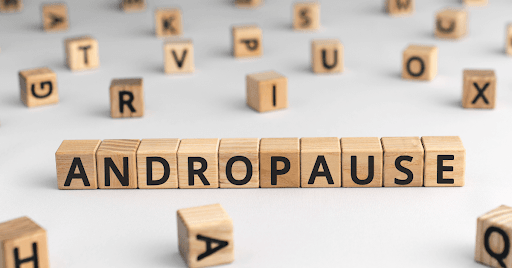
Women aren’t the only ones who experience hormone changes as they age. Male menopause, or andropause, is the decline in male hormone production. This drop in hormone levels is not as dramatic as women going through menopause. The NHS suggests that although testosterone levels fall as men age, the decline is steady at about 1% a year from around the age of 30 to 40. Although a slower progression than menopause, andropause can still be responsible for physical and emotional symptoms in men.
About Andropause
Even though hormone levels decrease at a slowed rate in men as they age, it can still lead to complications, such as late-onset hypogonadism (LOH). At Alliance Urology, our board-certified physicians specialize in the diagnosis and treatment of a variety of urological conditions, including low testosterone.
What Is Andropause?
Andropause is a term used to describe the symptoms and conditions some men experience after the age of 40 as their testosterone production decreases. Hypogonadism refers to a syndrome in which the body produces insufficient sex hormones. These two conditions both cause changes in male hormone levels, including a gradual decrease in testosterone levels. This decrease in male hormones can alter many bodily functions in men, including
- Sperm development
- Tolerance to pain
- Libido
- Learning, memory, and concentration
Andropause is diagnosed using a blood test that determines testosterone levels. Some doctors may perform a physical exam and ask you questions about your symptoms and lifestyle behaviors.
What Are The Symptoms Of Andropause?
A decrease in testosterone levels in men often goes unnoticed, as many men experience no symptoms at all. Those who do experience symptoms of andropause will notice they are similar in characteristics to low testosterone levels. Some of these symptoms include
- Low sex drive
- Loss in muscle mass
- Fatigue
- Erectile dysfunction
- Irritability and mood swings
It is important to note that having one of these symptoms does not automatically suggest andropause. However, should you be experiencing a number of the symptoms above, consulting your healthcare provider is recommended. Guidelines from the American Urological Association (AUA) state a man with a testosterone level below 300 ng/dL should be diagnosed with low testosterone.
Can Andropause Be Prevented?
Symptoms of andropause can sometimes be prevented naturally through lifestyle changes. Some ways to naturally boost testosterone levels include
- Lifting weights: Regular activity that includes resistance training or weight lifting stimulates testosterone production, promotes muscle growth, and boosts metabolism.
- Limiting alcohol consumption: Studies have shown that heavy alcohol consumption directly results in reduced testosterone levels.
- Eating a balanced diet: Eating a well-balanced diet with foods high in zinc, omega-3s, vitamin D, and calcium promotes hormone production.
- Getting enough sleep: Getting enough sleep is essential for preventing andropause, as testosterone is produced during REM sleep.
If you are still experiencing symptoms in line with low testosterone levels despite these lifestyle changes, treatment is available.
Is There Treatment For Andropause?
The most common treatment for low testosterone is hormone therapy. Testosterone replacement therapy, or TRT, uses synthetic testosterone to treat symptoms. TRT may also help with bone and muscle health. TRT can be given via injection, pill, implant, patch, or topical gel.
TRT does have possible side effects, and the treatment should be monitored to ensure that there are no serious issues.
Men who are experiencing symptoms in line with low testosterone levels should talk to their healthcare provider about lifestyle changes and treatment. At Alliance Urology, we are here to answer all of your questions and find the best treatment for your health concerns, including symptoms related to andropause. Check out our website or give us a call at (336) 274-9638 to schedule an appointment today.

